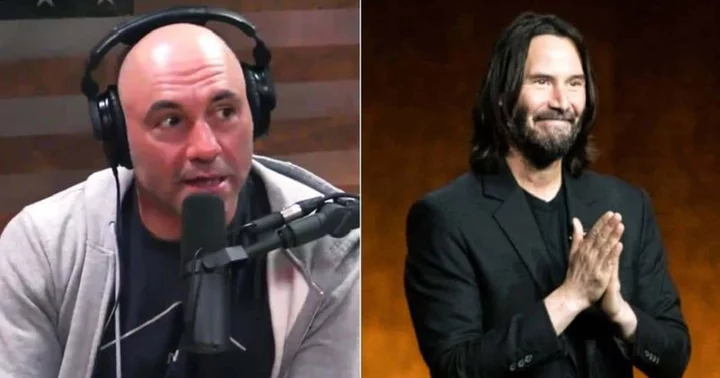Jim Brown, the legendary Cleveland Browns running back who was one of the NFL's most prolific players and a civil rights icon has died at the age of 87, his family and the team confirmed on Friday.
Brown's wife, Monique, had announced on Instagram that Brown "passed peacefully" on Thursday night at their home in Los Angeles.
"To the world he was an activist, actor, and football star," said the post, which did not disclose a precise cause of death. "To our family he was a loving and wonderful husband, father, and grandfather. Our hearts are broken..."
Browns owners Jimmy and Dee Haslem issued a statement calling Brown "a true icon of not just the Cleveland Browns but the entire NFL.
"He was certainly the greatest to ever put on a Browns uniform and arguably one of the greatest players in NFL history," the Haslems said.
Brown, who was named the greatest football player ever by the Sporting News in 2002, was taken in the first round of the 1957 draft and played for the Browns from 1957-65.
He led the NFL in rushing eight of those seasons and finished his career with 12,312 rushing yards and 5.2 carries per game.
He was named to the Pro Bowl every season he played and led Cleveland to the NFL championship game three times, winning the title in 1964.
The three-time Most Valuable Player ran for at least 100 yards in 58 of his 118 regular-season games, and never missed a game.
He rushed for more than 1,000 yards in seven seasons. That included 1,527 yards in one 12-game season and 1,863 in a 14-game season.
James Nathaniel Brown was born in St. Simons Island, Georgia, in 1936 and was a high school star in football, basketball, baseball, lacrosse and athletics.
He continued to excel as a multi-sport athlete at Syracuse University, his football career gaining steam when he totaled 986 rushing yards and 13 touchdowns in his senior year.
The Browns selected Brown with the sixth overall pick in the 1957 draft and he made an immediate impact in coach Paul Brown's offense.
He led the league his rookie season with 942 rushing yards and nine touchdowns, including a 237-yard performance in his ninth game that stood as the most in a single game in league history for 14 years.
He was named MVP that season and remains the only rookie to capture the award.
"(Coach Paul Brown) liked me," Brown said in the NFL Network's "A Football Life." "He said to me, 'You are my running back. You are my running back.' It was the sweetest words I've ever heard as a professional football player."
Brown was still at his peak when he retired at the age of 30, shocking the sports world.
He had led the league in rushing and touchdowns in his final season, but announced his retirement while on the set filming "The Dirty Dozen" in London.
- A hand in the struggle -
A day after retiring, Brown told Sports Illustrated pro football writer Tex Maule: "I could have played longer. I wanted to play this year, but it was impossible.
"We're running behind schedule shooting here, for one thing. I want more mental stimulation than I would have playing football. I want to have a hand in the struggle that is taking place in our country, and I have the opportunity to do that now. I might not a year from now."
A year later, Brown founded the Negro Industrial and Economic Union, an organization that would later be known as the Black Economic Union.
The goal of the organization was to guide black entrepreneurs, and the organization became the nucleus of Brown's efforts to make the country a more equal place for African Americans.
On June 4, 1967, Brown participated in the Cleveland Summit, joining with other prominent Black athletes at the Black Economic Union's offices in Cleveland to interview boxer Muhammad Ali and decide whether to support his stand against being inducted into the US armed forces during the Vietnam War.
The group decided to back Ali, the decision becoming a potent symbol of Black unity during the Civil Rights movement in America.
"During his nine-year NFL career, which coincided with the civil rights movement here at home, he became a forerunner and role model for athletes being involved in social initiatives outside their sport. He inspired fellow athletes to make a difference, especially in the communities in which they lived," NFL commissioner Roger Goodell said in a statement.
But Brown's life was not without controversy. He had multiple run-ins with the law, starting with an assault charge in 1968 that was dismissed when the alleged victim declined to cooperate with prosecutors.
Brown was charged but acquitted in a road-rage case in 1970 and was convicted of misdemeanor battery in 1975 for assaulting a golf partner. In 1985 he faced a rape charge that was later dropped.
In 1999, Brown was arrested for allegedly threatening his wife and vandalizing her car with a shovel. He served three months in jail after he was convicted of vandalism after declining to complete a domestic violence counseling program, pay a fine and donate to a battered women’s shelter.
bb/ea









